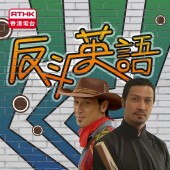 載入中 ...
載入中 ...
返回
Men On Pole
2019-11-05
When it comes to pole dance, some may think of debauched nightclubs, smoking hot strippers, and some may even consider it a pornographic and unpresentable acrobatic display. In fact, it is easier said than done to pose and perform alluring moves on a pole. Not only must the dancer have sufficient muscle strength to hold a bodily posture, but a flexible physique is also required to pose beautifully and gracefully.
Narlton, a 25-year-old pole dancing instructor, likes to integrate acrobatic elements into pole dance and challenge the limits of both muscle strength and somatic flexibility. Narlton opened his own dancing studio in January this year and began to promote pole dance as a form of exercise. There have been more and more advocates fighting to make pole dance an Olympic sport in recent years in the choreographic circle around the globe, while the international competitions of pole dance growing more sizeable. Narlton points out that the scoring criteria of such competitions are standardised, similar to those of the gymnastic competitions in the Olympic Games. Narlton went to Japan in April this year to participate in an international competition, during which not only did he win a prize, but he also noticed that all others prize winners were members of national teams. He was the only person who joined on an individual basis, where the staff were also surprised that he did not have a Hong Kong team uniform. This experience is etched in his memory, and it also drives him to set his mind in promoting pole dance with a view to having a Hong Kong pole dance team in the future.
The 22-year-old Leon believes that pole dance is a form of performance art that shall not be limited to females. He says he likes to transcend beyond conventional boundaries. He is fully aware that ordinary people would be startled to see a man pole dancing, and some may even frown upon such idea. However, he wants to challenge people’s comfort zone and allow everyone to introspect through his dance, so that people can understand neither genders shall be prejudiced. Yet, in a rather conservative city like Hong Kong where the market of pole dance is still small, Leon does not have many opportunities to perform. Leon targets to go beyond Hong Kong and get invited to teach pole dance around the world, but fame is the first thing he needs if such target is to be achieved. Therefore, he resolved to participate in an international competition called Mr Pole Dance, in Sydney, Australia in June 2016, and went head to head with elite dancers from around the globe for the zenith.
As pole dance is a form of performance art as well as an exercise, why can’t it be promoted? Symone, an Australian pole dancing instructor who was raised in Hong Kong, has been teaching pole gymnastics to children since a few years back. Her youngest student is only seven years old, and the sprightly energetic students of hers act like monkeys on the pole and indulge in an exhilarating mood every time they come to her class. Symone points out that, most of her current students are foreigners. She hopes that parents in Hong Kong will gradually recognise pole dance as an interest activity after school.
Narlton, a 25-year-old pole dancing instructor, likes to integrate acrobatic elements into pole dance and challenge the limits of both muscle strength and somatic flexibility. Narlton opened his own dancing studio in January this year and began to promote pole dance as a form of exercise. There have been more and more advocates fighting to make pole dance an Olympic sport in recent years in the choreographic circle around the globe, while the international competitions of pole dance growing more sizeable. Narlton points out that the scoring criteria of such competitions are standardised, similar to those of the gymnastic competitions in the Olympic Games. Narlton went to Japan in April this year to participate in an international competition, during which not only did he win a prize, but he also noticed that all others prize winners were members of national teams. He was the only person who joined on an individual basis, where the staff were also surprised that he did not have a Hong Kong team uniform. This experience is etched in his memory, and it also drives him to set his mind in promoting pole dance with a view to having a Hong Kong pole dance team in the future.
The 22-year-old Leon believes that pole dance is a form of performance art that shall not be limited to females. He says he likes to transcend beyond conventional boundaries. He is fully aware that ordinary people would be startled to see a man pole dancing, and some may even frown upon such idea. However, he wants to challenge people’s comfort zone and allow everyone to introspect through his dance, so that people can understand neither genders shall be prejudiced. Yet, in a rather conservative city like Hong Kong where the market of pole dance is still small, Leon does not have many opportunities to perform. Leon targets to go beyond Hong Kong and get invited to teach pole dance around the world, but fame is the first thing he needs if such target is to be achieved. Therefore, he resolved to participate in an international competition called Mr Pole Dance, in Sydney, Australia in June 2016, and went head to head with elite dancers from around the globe for the zenith.
As pole dance is a form of performance art as well as an exercise, why can’t it be promoted? Symone, an Australian pole dancing instructor who was raised in Hong Kong, has been teaching pole gymnastics to children since a few years back. Her youngest student is only seven years old, and the sprightly energetic students of hers act like monkeys on the pole and indulge in an exhilarating mood every time they come to her class. Symone points out that, most of her current students are foreigners. She hopes that parents in Hong Kong will gradually recognise pole dance as an interest activity after school.
Urban dance has attracted young learners from all over the world. For the mainstream culture in the USA and the young people there, it has become an overwhelming force. When it has landed on foreign soil, it cross-breeds with distinctive local culture and the local historical background, and hence transforms itself into a series of peculiar cultural phenomena.
In Hong Kong, several young instructors of dance are under the influence of this overwhelming trend. “Tai Lun” (吳漢倫), “Wing” (劉詠誼) and “Ah Lun” (周啟麟) are good friends with each other; in 2015, they participated together in the first “Arena” national competition of group dance in Chengdu. They lost. Without any awards, they were still undeterred; they even want to make a second attempt at the competition through which to reach out to the international scene. Their objective for 2016 is to collaborate to create a special dance work, and then head for the “Arena” competition in Chengdu again, with a troupe newly formed in Hong Kong. The three of them have very different personalities and preferences, but the same goals. They show us the passion and determination which exist only in the minority of Hongkongers; they also show us the influence of dancing on them.
Although Hong Kong is often described as lacking very much in culture, and notwithstanding the fact that pursuing our dreams is regarded by many as unrealistic, the three of them still have hopes, as they are expecting to win the approval of others by their own capability. Having learnt the lesson from the fiasco of the Arena competition last year, the three of them are trying to equip themselves better this time for another attempt.
Before setting off for Chengdu again, in order to prepare better for the competition, the three of them visited the USA, Japan and Korea to exchange with the local dancers and learn about the merits of different dancing skills, after which they choreographed a work for the competition. For these three dancers, this journey is not only about finding the true meanings of dancing, it is also a journey of self-discovery. In first five episodes, we will witness how the three of them find their way to the national stage step by step.
In Hong Kong, several young instructors of dance are under the influence of this overwhelming trend. “Tai Lun” (吳漢倫), “Wing” (劉詠誼) and “Ah Lun” (周啟麟) are good friends with each other; in 2015, they participated together in the first “Arena” national competition of group dance in Chengdu. They lost. Without any awards, they were still undeterred; they even want to make a second attempt at the competition through which to reach out to the international scene. Their objective for 2016 is to collaborate to create a special dance work, and then head for the “Arena” competition in Chengdu again, with a troupe newly formed in Hong Kong. The three of them have very different personalities and preferences, but the same goals. They show us the passion and determination which exist only in the minority of Hongkongers; they also show us the influence of dancing on them.
Although Hong Kong is often described as lacking very much in culture, and notwithstanding the fact that pursuing our dreams is regarded by many as unrealistic, the three of them still have hopes, as they are expecting to win the approval of others by their own capability. Having learnt the lesson from the fiasco of the Arena competition last year, the three of them are trying to equip themselves better this time for another attempt.
Before setting off for Chengdu again, in order to prepare better for the competition, the three of them visited the USA, Japan and Korea to exchange with the local dancers and learn about the merits of different dancing skills, after which they choreographed a work for the competition. For these three dancers, this journey is not only about finding the true meanings of dancing, it is also a journey of self-discovery. In first five episodes, we will witness how the three of them find their way to the national stage step by step.












